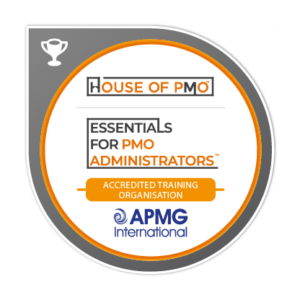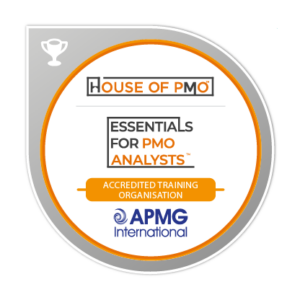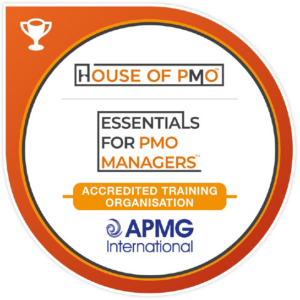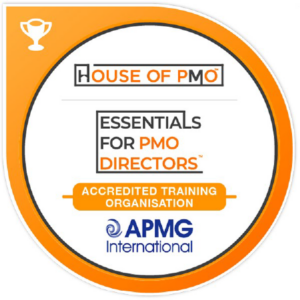
Before we can hope to highlight the five top skill areas for a PMO Manager we have to define what kind of PMO it is. We have to take into account that there are many different variations of PMOs in existence. At the top-level, we can call the PMO – a Project Office, a Programme Office and a Portfolio Office. We can then categorise them based on where they sit within an organisation – at the enterprise level, departmental level or at the individual programme or project level. To throw another one into the pot we can also categorise a “Centre of Excellence” as a PMO too. This is the group or department who are responsible for ensuring standards, processes, methods etc for the project management area of the business.
So we have different types of PMOs and of course, the people who manage them will be different too. There are different levels of seniority, authority and skill levels in both project management and business.
With all of this in mind, the top five skill areas for a PMO Manager in this article is going to focus on the top skills needed REGARDLESS of the type of PMO it is.
1. Communication
 Without communication skills, a PMO Manager can never hope to make a success of their job. Consider the sheer number of people they need to work with on a daily basis. From senior managers, to Project Managers, PMO team members, other departments and customers. With each stakeholder group consider the differences in conversations with each. Then think about the challenges within each stakeholder group and how the PMO interfaces with them, supports them, helps them come to decisions based on the service a PMO offers.
Without communication skills, a PMO Manager can never hope to make a success of their job. Consider the sheer number of people they need to work with on a daily basis. From senior managers, to Project Managers, PMO team members, other departments and customers. With each stakeholder group consider the differences in conversations with each. Then think about the challenges within each stakeholder group and how the PMO interfaces with them, supports them, helps them come to decisions based on the service a PMO offers.
Then on top of all that, think about the bad press PMOs regularly get. A PMO Manager regularly has to wear many different hats and with that comes many different conversational styles. I’m thinking a PMO Manager is like a PR spokesperson one minute, an accountant the next, a counsellor, legal counsel, a spook, a referee, a teacher and so on.
2. Project Management
I’ve called it project management yet it is anything and everything that falls into the wider project management umbrella. A PMO Manager has to understand what project management is, what opportunities it presents to their organisation, how to utilise project management and when to leave the parts that aren’t needed for the business. If PMO is a career of choice for PMO Managers, it stands to reason that they understand the best and good practice that surrounds project, programme and portfolio management.
They also bring a realism to their understanding of project management too. If they have not experienced parts of it first hand, they are duty bound to seek out others and learn from them, for example, a PMO Manager managing a small project office today cannot ignore portfolio management. They need to understand where their PMO fits into the bigger picture regardless of what their organisation’s current PMO set up is. How can a PMO Manager help provide solutions for their organisation tomorrow if they don’t know what they don’t know?
3. Management
 A PMO Manager manages. Regardless of the PMO set up, people work within a PMO and those people need managing. Even if the PMO is a “Project Office of One” or a “Project Office of Two”, in relation to the number of people who work within it, someone still needs managing. This, along with #1 communication, is the biggest challenge people face when they’ve been newly promoted to a PMO Manager role.
A PMO Manager manages. Regardless of the PMO set up, people work within a PMO and those people need managing. Even if the PMO is a “Project Office of One” or a “Project Office of Two”, in relation to the number of people who work within it, someone still needs managing. This, along with #1 communication, is the biggest challenge people face when they’ve been newly promoted to a PMO Manager role.
This is even more of a challenge when they have been promoted from within the existing PMO. Like all of our skill areas, management is something we never stop learning about or wanting to do better. If you’re currently a PMO Analyst thinking about pursuing a PMO Manager role, take heed, it can be the biggest unexpected challenge you’ll ever face!
4. Finding the Balance
Finding the balance between working at the detailed level of the programmes and projects and the higher-level information that senior managers want and work with is a regular challenge for a PMO Manager. Linked to this is understanding the wider business too.
You wouldn’t expect the finance department or HR department to be solely interested in their subject matters of money and people. They are a function within a business and as such, they need to understand what is happening with the wider business and how it will impact their work and plans. The same should be true of the PMO. Knowing all about the programmes and projects is fine but knowing more about the business and how it will impact programmes and projects in the future is a great skill for a PMO Manager.
5. Visionary
This might not be a popular choice but the fact remains that PMOs are within organisations that change and that means the PMO changes too. PMO Managers can never really be happy with the status quo. The way things are today with their PMOs are unlikely to be the same a year or two later. As organisations are constantly changing (just look at the impact agile is having at the moment, with AI too) so too must the PMO if it is to stay relevant, successful, indispensable.
We know PMOs are not 100% successful or even well-liked within some businesses – the same can be said of project management as a whole too – yet PMO Managers should always be thinking about improvements and innovations. PMO Managers who are truly visionary have some excellent ideas for their PMOs, they’re also keen to share those ideas with the many different stakeholders that the PMO works with and for.
Regardless of the type of PMO you manage, there are core skills and behaviours that we have come to expect from great PMO Managers.
If you’re looking for some formal learning on your PMO management role, check out the following great courses:
Enjoying Our Blog?
Sign up and receive all our articles (we’ll send you an update once a week!) plus special offers and events:













